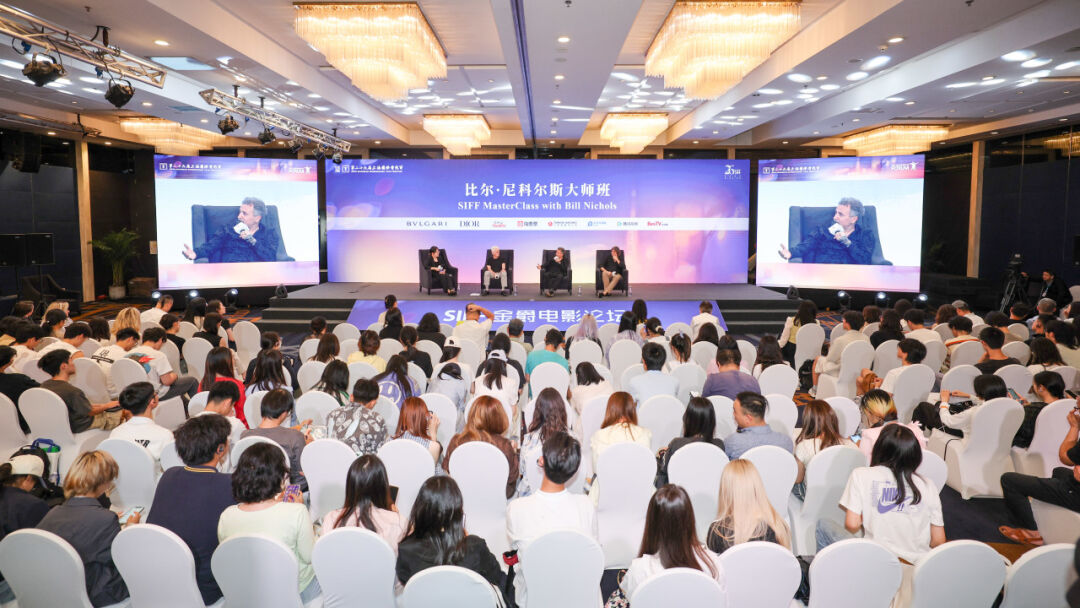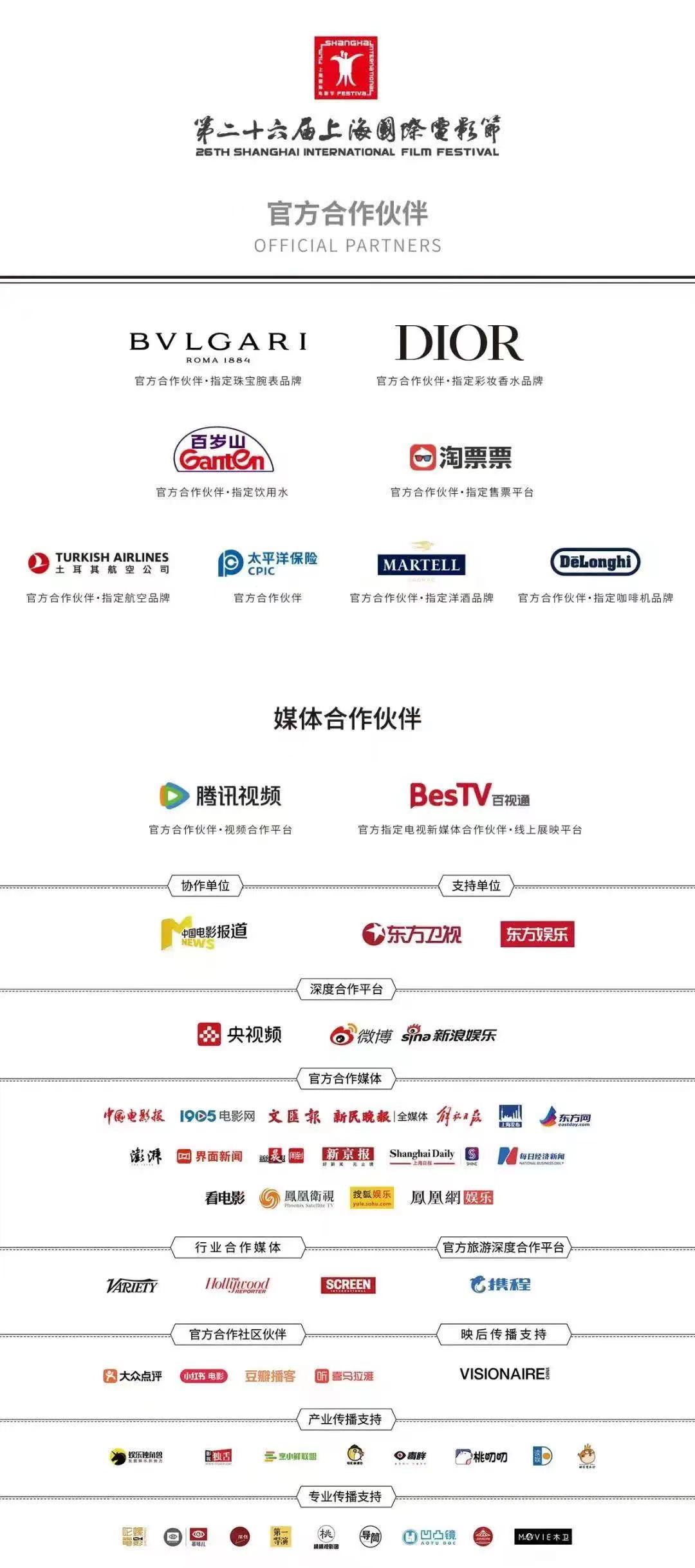SIFF MasterClass | Bill Nichols: “Providing Knowledge” Is at the Core of Documentary Filmmaking
In recent years, both domestic and international documentaries have seen unprecedented growth, accompanied by ongoing controversies: how to interpret the “truthfulness” and “narrativity” of documentaries? Do creators’ subjective intentions enhance or diminish the essence of documentaries? How does technological advancement impact documentary production? On the afternoon of June 18, SIFF MasterClass of the 26th Shanghai International Film Festival welcomed its first keynote speaker, esteemed American scholar and Honorary Professor emeritus of Cinema at San Francisco State University, Bill Nichols, who also serves as Jury President for the documentary unit at this year’s Golden Goblet Awards.

Bill Nichols is renowned in Western academia as a distinguished theorist of documentary filmmaking. Reflecting on the current popularity of documentaries, Nichols emphasized the importance of storytelling in helping people understand the world: “Storytelling has become a vital aspect of the power of documentaries. Narrating stories has always been our way of creating meaning; we are not merely explaining but facilitating understanding.”
Also attending as guests were jury member of this year’s Golden Goblet Awards’ documentary unit Talal Derki and last year’s jury member Atanas Georgiev, who shared their insights and reflections on documentary creation.
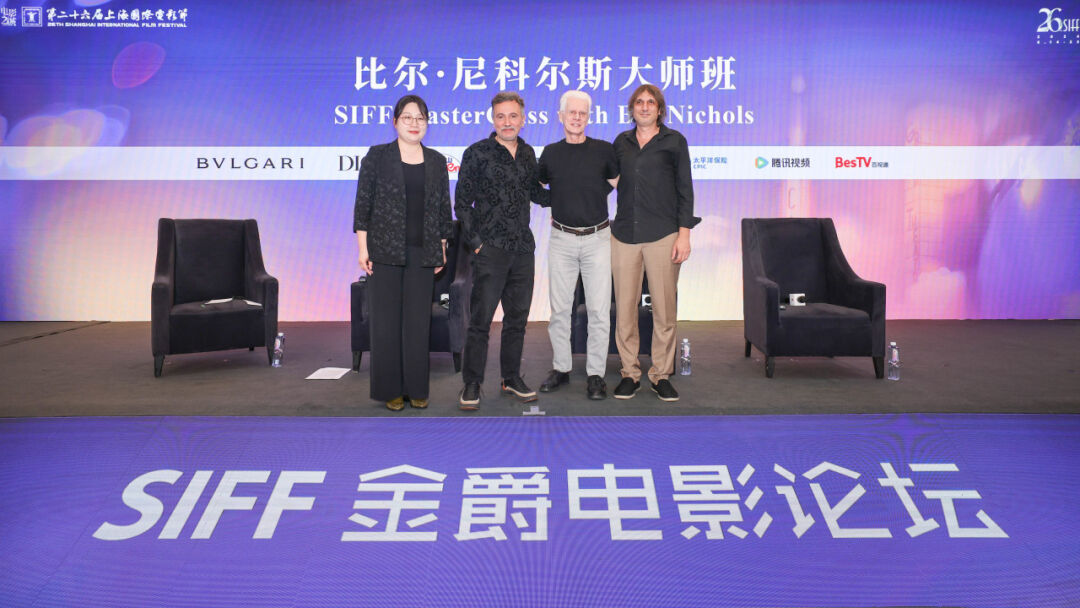
The core of documentaries isn’t “facts”
but rather “providing knowledge”
Documentaries that aren't heavily focused on entertainment still manage to captivate global audiences. Bill Nichols offers an intriguing answer: people deepen their understanding of the world and enhance their wisdom through various means, and watching documentaries is one of them. “Facts are not the core of documentaries, at least not for me. Providing ‘knowledge’ is our core mission in documentary filmmaking, whether it’s concrete, abstract, or experiential knowledge.”
Nichols elaborates that his notion of “knowledge” goes beyond its literal meaning, especially when it involves “experiential knowledge”. It encompasses feelings, emotions, and thoughts – “knowledge that resonates deeply within us as humans, shaping our understanding. Influencing us as humans, this is the knowledge documentaries offer through storytelling. While information is crucial, its impact and influence through documentaries are paramount.”
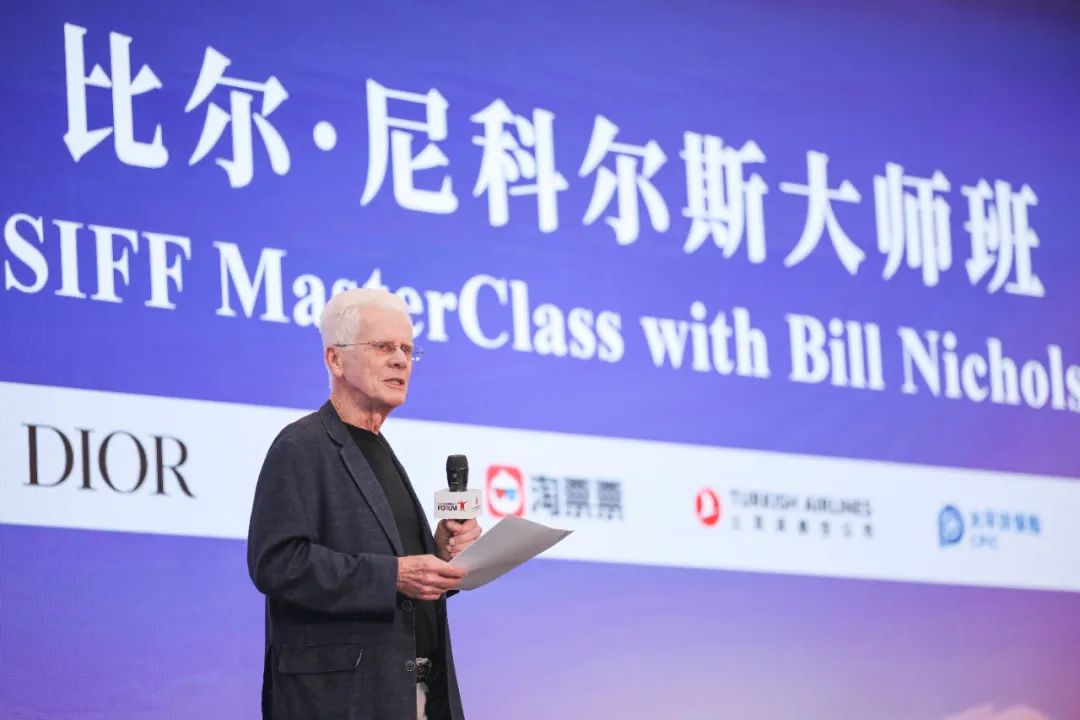
According to Nichols, documentaries invite audiences into the realm where stories unfold through various openings. He lists six widely used documentary opening styles: posing questions, issuing calls to action, examining situations, presenting media report, evoking emotions, and employing satire.
Particularly, documentaries that start with posing questions or examining situations emphasize a sense of “tangible experiential knowledge”. For example, a young girl holding a dangerous small animal or a solitary woman walking through harsh terrain - these striking images aim not just to impart information but to present a form of “knowledge” and evoke a feeling.
Documentaries need objective truth
but also require a unique perspective
Whether a documentary can facilitate “understanding”, and what kind of “understanding” it fosters, depends on the mutual engagement between the audience and the work itself. From the audience’s perspective, grasping an excellent documentary requires both emotional and rational engagement. Nichols emphasizes this as a unique way of understanding documentaries, one that surpasses mere information or meaning – it’s experiential. Our subjective involvement in documentaries allows us to grasp the form and essence of life through metaphors that represent life itself in the work.
While audiences can engage subjectively, documentary creators must exercise self-discipline. Since the inception of documentaries, the extent to which creators can inject subjectivity has been a contentious issue. Initially, scholars argued that documentaries must honestly reflect reality. However, as different types of documentaries emerged, researchers like Nichols proposed that beyond objective truth, can documentary makers offer a specific perspective? Does this perspective help viewers see issues from new angles? “Documentaries tell stories that move and influence us, and how they tell these stories is equally crucial,” he asserts. Looking at the evolution of documentaries, he notes, “Emphasizing more subjective and expressive forms has been a significant shift in documentary filmmaking.”
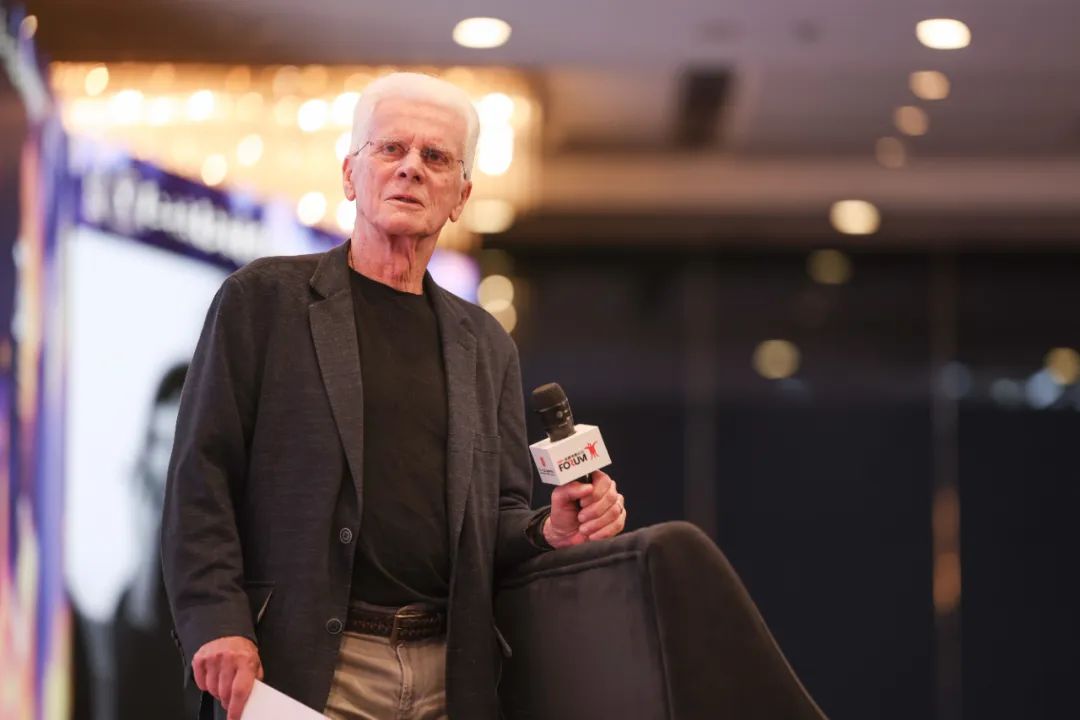
In the realm of new documentary formats, techniques like staged reenactments, scene recreations, and animated interpretations have stirred controversy. Nichols takes a highly inclusive stance on this: “We observe all these changes in documentaries, with more forms of emotional expression. In a way, it convinces me - documentaries are also an art form. They require the qualities that any art must possess. They can even be fictional, but this fiction cannot be like the fiction in other art forms because it has to represent the truth, simply in the service of expressing that truth.”
Nichols uses the reality TV show THE REAL HOUSEWIVES OF BEVERLY HILLS as an example. The program invites housewives to discuss their lives, yet most of their portrayals are carefully planned and scripted, neither reflecting their true selves nor actual reality. Therefore, “it’s an exaggerated version of life, it’s entertainment, not a documentary.”
AI will only change how stories are told,
not their significance
The burgeoning AI technology is a highly debated topic at this film festival, and undoubtedly, it also profoundly influences the creation of documentaries. During his speech, Bill Nichols showcased an AI-generated female portrait to the audience: lifelike, yet representing no actual existing person in the world.
Nichols emphasizes that scientific technology is essentially neutral; what matters is how we evaluate it and assign it value. In terms of filmmaking, technological innovation simply signifies the tools people use to express viewpoints and tell stories - just as people started with cave paintings, then moved to text, then images, and now AI.
“Regardless of the technology we use, maybe in 20 years, no one will be using digital cameras anymore, but the demand for storytelling will definitely remain a part of human nature. All countries, all cultures need the telling of these stories. This involves the meaning of our lives,” he said. “Even with AI now, the way we tell stories may change, but the significance of storytelling itself will not change; it is eternal.”
As a guest at this SIFF MasterClass, Talal Derki, who has multiple titles as a director, screenwriter, and producer, frankly stated that even mature filmmakers find it difficult to avoid the concern of being replaced by AI. What can be done now is to consider how to use it to make good films. “We need to use it as a scientific technology to see if it can improve the quality of our films.”
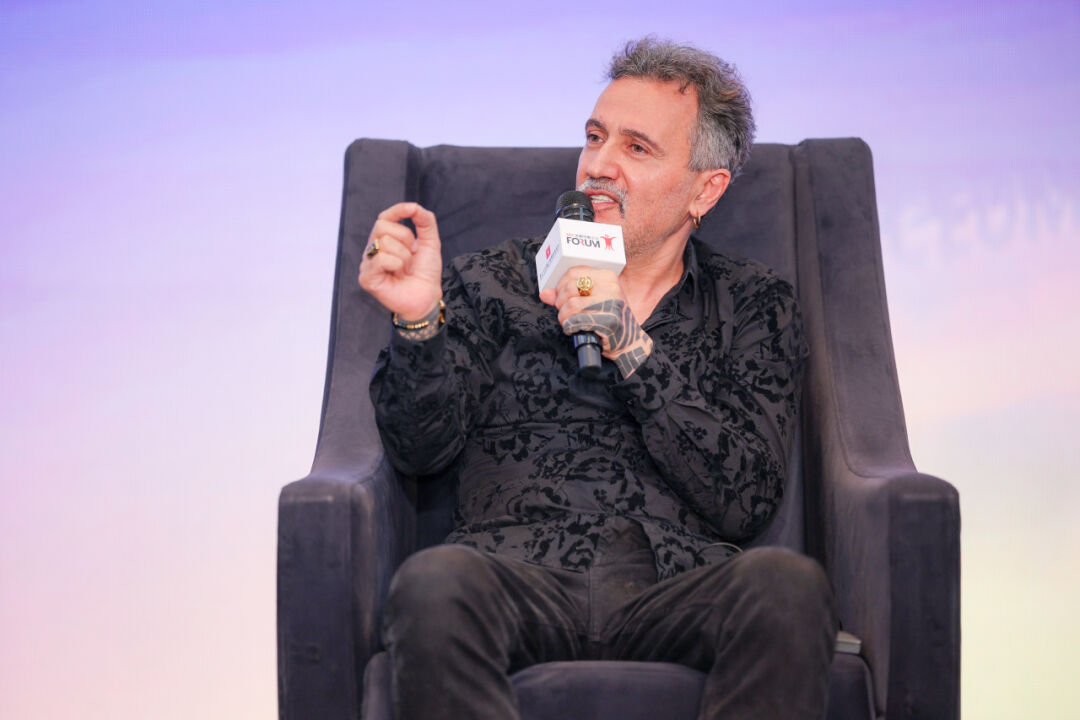
Another guest, Atanas Georgiev, entered the film industry as an editor. In 2019, his documentary HONEYLAND, where he served as both producer and editor, won over 70 awards worldwide and remains the only film nominated for both Best Documentary Feature and Best International Feature at the Oscars to date.

He expressed that in the near future, ordinary people could also use AI to create their own films and tell their stories. This might pose a threat to fictional narrative films but not necessarily to the documentary industry. “We deal with real people, real events; robots cannot replace these people and events.” Even in the realm of fictional films, stories created by AI may initially seem fascinating, but after a certain period, audiences may find it unbearable. They will still want to see real stories - of course, this prediction will take a long time to validate.
